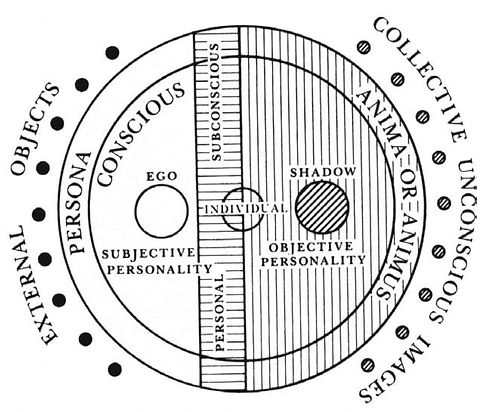Aims

Milan Hausner counsels a patient in his office at the Sadská clinic in 1974. A color photo of the same scene in a popular magazine contributed to the end of LSD psychotherapy in Czechoslovakia. Picture taken from: Chris Elcock, Erika Dyck, Expanding Mindscapes: A Global History of Psychedelics. (2023). Royaume-Uni: MIT Press.
Historical
IFPPsy is committed to exploring the historical mutual influences between psychoanalysis and psychedelics.
We aim to:
-
Trace the historical entanglement between these fields by investigating how psychoanalytic concepts—such as regression, transference, unconscious conflict, and symbolic integration—shaped the first wave of psychedelic psychotherapy in the mid-20th century.
-
Analyze how psychedelic experiences have, in turn, challenged and expanded psychoanalytic theory, offering new perspectives on the unconscious, temporality, trauma, and the boundaries of the ego.
-
Reflect on the marginalization of psychoanalysis during the recent resurgence of psychedelic research, dominated by neuroscientific and cognitive-behavioral paradigms, and propose ways to reintroduce analytic thought into contemporary models of care and interpretation.
-
Investigate how psychoanalytic frameworks still inform psychedelic-assisted psychotherapies today.
-
Critically examine what remains of psychoanalysis in today’s psychedelic cultures—and what might be reactivated, transformed, or reimagined through renewed dialogue.

Epistemological
IFPPsy seeks to examine how psychedelic experiences may challenge, expand, or reconfigure core psychoanalytic concepts and epistemological assumptions.
We aim to:
-
Interrogate the conditions of possibility for both psychoanalytic and psychedelic experience: How are these experiences constituted, interpreted, and legitimized? What epistemic frameworks render them thinkable as therapeutic, symbolic, or transformative?
-
Re-examine the concept of the unconscious in its multiple psychoanalytic formulations—Freudian, Lacanian, Jungian, Bionian, etc.—through the lens of psychedelic states. Does the unconscious receive confirmation, correction, amplification, transformation, or require a radical rethinking?
-
Assess how key analytic concepts—such as repression, resistance, drive, displacement, condensation, figurability, and transference—are affected by the phenomenology of psychedelic experiences. Are these notions validated, displaced, redefined, or extended in light of such altered states?
-
Explore the capacity of psychedelic experience to produce dynamic “cartographies” of the psyche, offering access to repressed material, symbolic structures, affective configurations, and deep relational patterns that resonate with psychodynamic theory.
-
Compare the kinds of knowledge generated by analytic and psychedelic processes. What is the status of these knowledges—symbolic, embodied, affective, narrative, transformative? How do they relate to truth, subjectivation, and interpretation?
-
Examine the epistemological status of unconscious formations—such as dreams, slips of the tongue, symptoms, and jokes—and relate them to the contents and forms of psychedelic visions. What are the continuities and discontinuities?
-
Consider the relation between psychodynamic and transpersonal perspectives on psychedelic experience. What tensions, overlaps, or irreducible differences shape their respective understandings of the psyche, the self, and transformation?
-
Reopen the question of psychoanalytic metapsychology under the pressure of psychedelic phenomena—particularly regarding temporality, embodiment, affective intensities, symbolic mediation, and the limits of the ego.In light of these altered states, can we conceive of a metapsychology of the psychedelic state and experience? What would be its conceptual coordinates, its dynamic logic, and its relation to the unconscious?

Grob, Charles & Bossis, Anthony & Griffiths, Roland. (2013). Use of the Classic Hallucinogen Psilocybin for Treatment of Existential Distress Associated with Cancer. 10.1007/978-1-4614-4866-2_17.
Clinical
The encounter between psychoanalysis and psychedelics—still marginal in contemporary clinical practice—opens a field of exploration where theoretical, technical, and ethical dimensions intersect. At this stage, our priority is to outline research avenues and open questions that may guide the development of a rigorous and innovative clinical practice.
We aim to:
-
Integrating the psychoanalytic and psychedelic settings
How can the setting, technique, and clinical method of psychoanalysis be adapted to, or integrated with, the current models of psychedelic-assisted psychotherapy (PAP)? Which elements of the analytic practice are transferable, and which require reformulation?
-
Transformations of transference and countertransference
Is the notion of transference still a useful lens for understanding the therapeutic relationship in a psychedelic context? How does the psychedelic experience alter the quality, intensity, and direction of transference? To what extent is the therapist called upon to process new forms of countertransference linked to the amplified characteristics of the relational field?
-
Impact of psychedelic experience on the analytic process
How does the psychedelic experience influence ongoing analytic work? Can it accelerate the elaboration of conflictual nodes, foster profound insight, or mobilize complex defensive patterns? In what ways does it alter clinical efficacy or elaboration?
-
Psycolytic practice and contemporary psychedelic perspectives
Is it possible to reintroduce psycholytic clinical work—historically associated with long-duration sessions and modulated dosing to promote associative processes—into today’s PAP frameworks? Which aspects of psychoanalytic clinical practice can sustain the development of a psychedelic clinic with exploratory and transformative aims, beyond symptom reduction alone?
-
Restructuring the self and narrative plasticity
Non-ordinary states of consciousness appear to increase plasticity in self-narratives and internal relational models. How can psychoanalysis support the durable integration of such transformations? Which factors facilitate or hinder the creative appropriation of emerging material?
-
Clinical assessment and research methodology
How can the effects of the encounter between psychoanalysis and PAP be systematically documented—both in terms of clinical outcomes and deep changes in psychic functioning? Which qualitative and quantitative tools are most suitable for assessing short- and long-term impact?